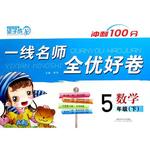
B
It 'snot easy being a teenager( 13至19岁青少年)—www.zxxk.comnor is  it easy being the paint of a teenager. You can make your child feel angry, hurt, or misunderstood by what you say without realizing it yourself. It is important to give your child the space he needs to grow while gently letting him know that you you' ll still be there for him when he needs you.
it easy being the paint of a teenager. You can make your child feel angry, hurt, or misunderstood by what you say without realizing it yourself. It is important to give your child the space he needs to grow while gently letting him know that you you' ll still be there for him when he needs you.
Expect a lot from your child, just not everything. Except for health and safety problems, such as d rug use or careless driving, consider everything else open to discussion. If your child is unwilling to discuss something, don' t insist he tell you what' s on his mind. The more you insist, the more likely that he'll clam up. Instead , let him attempt to solve(解决) things by himself. At the same time, remind him that you' re always there for him should he seek advice or help. Show respect for your teenager' s privacy (隐私). Never read him his mail or listen in on personal conversations.
rug use or careless driving, consider everything else open to discussion. If your child is unwilling to discuss something, don' t insist he tell you what' s on his mind. The more you insist, the more likely that he'll clam up. Instead , let him attempt to solve(解决) things by himself. At the same time, remind him that you' re always there for him should he seek advice or help. Show respect for your teenager' s privacy (隐私). Never read him his mail or listen in on personal conversations.
Teach your teenager that the family phone is for the whole family. If your child talks on the family's telephone for too long, tell him he can talk for15 minutes, but then he must stay off the phone for at least an equal period of time. This not only frees up the line so that other family members can make and receive calla, but teaches your teenager moderation(节制). Or if you are open to the idea, allow your teenager his own phone that he pays for with his own pocket money or a part-time job.
50. The main purpose of the text is to tell parents______.
A. how to get along with a teenager
B. how to respect a teenager
C. how to understand a teenager
D. how to help a teenager grow up
51. What does the phrase "clam up" in Paragraph 2 probably mean?
A. become excited B. show respect
C. refuse to talk D. seek help
52.What should parents do in raising a teenager according to the text?
A.Not allow him to learn driving or take drugs
B.Give him advice only when necessary.
C.Let him have his own telephone.
D.Not talk about personal things with him.
 阳光同学一线名师全优好卷系列答案
阳光同学一线名师全优好卷系列答案科目:高中英语 来源:安徽省同步题 题型:阅读理解
AThereisastrangemixofpeople.
B.Therestaurantsareexpensive.
C.Thebillisnotfairlyshared.
D.Peoplehavetopaycash
查看答案和解析>>
科目:高中英语 来源:湖北省高考真题 题型:阅读理解
阅读理解。
查看答案和解析>>
科目:高中英语 来源:同步题 题型:阅读理解
查看答案和解析>>
科目:高中英语 来源: 题型:阅读理解
B
It 'snot easy being a teenager( 13至19岁青少年)—www..comnor is it easy being the paint of a teenager. You can make your child feel angry, hurt, or misunderstood by what you say without realizing it yourself. It is important to give your child the space he needs to grow while gently letting him know that you you' ll still be there for him when he needs you.
Expect a lot from your child, just not everything. Except for health and safety problems, such as drug use or careless driving, consider everything else open to discussion. If your child is unwilling to discuss something, don' t insist he tell you what' s on his mind. The more you insist, the more likely that he'll clam up. Instead , let him attempt to solve(解决) things by himself. At the same time, remind him that you' re always there for him should he seek advice or help. Show respect for your teenager' s privacy (隐私). Never read him his mail or listen in on personal conversations.
Teach your teenager that the family phone is for the whole family. If your child talks on the family's telephone for too long, tell him he can talk for15 minutes, but then he must stay off the phone for at least an equal period of time. This not only frees up the line so that other family members can make and receive calla, but teaches your teenager moderation(节制). Or if you are open to the idea, allow your teenager his own phone that he pays for with his own pocket money or a part-time job.
50. The main purpose of the text is to tell parents______.
A. how to get along with a teenager
B. how to respect a teenager
C. how to understand a teenager
D. how to help a teenager grow up
51. What does the phrase "clam up" in Paragraph 2 probably mean?
A. become excited B. show respect
C. refuse to talk D. seek help
52.What should parents do in raising a teenager according to the text?
A.Not allow him to learn driving or take drugs
B.Give him advice only when necessary.
C.Let him have his own telephone.
D.Not talk about personal things with him.
查看答案和解析>>
湖北省互联网违法和不良信息举报平台 | 网上有害信息举报专区 | 电信诈骗举报专区 | 涉历史虚无主义有害信息举报专区 | 涉企侵权举报专区
违法和不良信息举报电话:027-86699610 举报邮箱:58377363@163.com